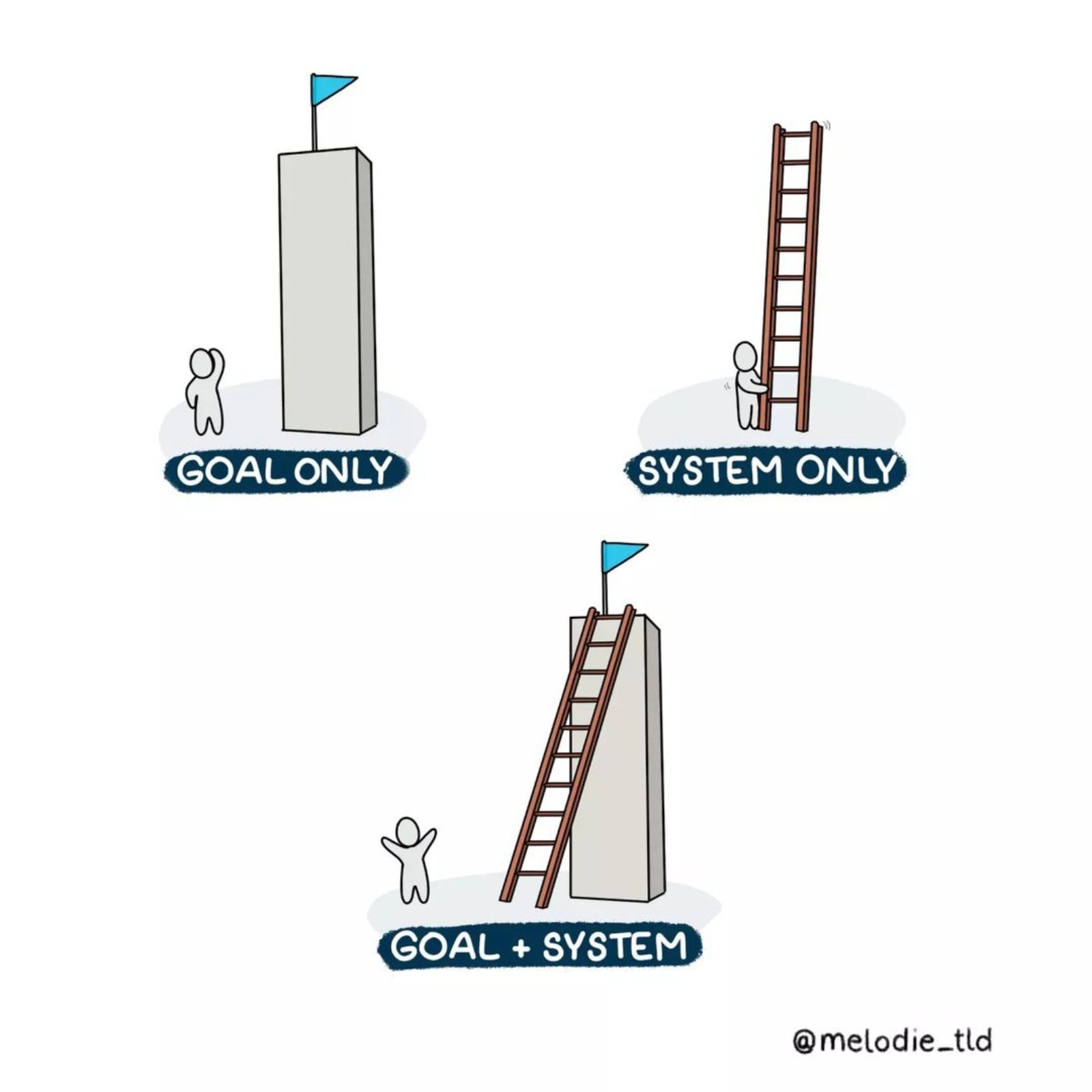In the future we will need people who can connect and communicate. And we will need people to transfer confidence, emotion, and a positive view of the world. We don’t need people to send e-mails as anyone including robots can send e-mails to promote products and services. I think salespersons are the athletes of the business world as they intrinsically enjoy competition. Successful salespeople are goal-oriented and self-motivated and these are also defining qualities of high-performing athletes.
Utopia doesn't exist
“With great power comes great responsibility” has a simple meaning; if you have the ability to do something, make sure that you do it for the good of others. As a consultant we earn our keep one hour at a time, therefore, one has to adjust your process and style to how your customers need to be communicated with. Most organisations today think in quarterly and annual forecasts, therefore, when you sign a consultancy contract, the launch may not necessarily be immediate.
“What I hear, I forget;
What I see, I remember; and
What I do, I understand.
”
Providing performance solutions
Performance management is rooted in building an empowered and skilled workforce. When framing a performance issue, try asking yourself the following questions:
1. Is it a skill problem? (aptitude; training)
2. Is it a hill problem? (altitude; difficult task)
3. Is it a will problem? (attitude; motivation)
Get back to basics
c/o Harvard Business Review
This well-known Ancient Greek tale "The North Wind and the Sun” is my favourite Aesop’s fable.
“Long ago, the Wind and the Sun quarrelled over who was stronger. Upon seeing a traveller coming down the road, the Sun said: “Now we can end our dispute. Whomever of us can make that traveller take off his cloak shall be regarded as the victor. You begin.”
The Sun retired behind a cloud while the Wind blew, blustered, and raged upon the travelling man. But the harsher he blew, the tighter the man wrapped his coat. At last, exhausted, the Wind gave up in despair.
The Sun came out and shone in all her glory upon the traveller. Soon the man tipped his face up to the warmth. He removed his coat and basked in the Sun’s rays.”
There are many interpretations as to the meaning of the fable, I think Aesop’s fable basically says that if you want a man to take off his coat, you don’t blow it off. You make him feel warm, and he’ll take it off on his own. A metaphor is often used in framing a dispute or situation and you can use this fable as a metaphor for negotiation technique.
Figuring out a way
Sometimes you have to take things out of your head and put it on paper. In order to come up with the solutions we really have to know what the problem is, and you cannot come up with good answers unless you know the whole problem. I think that if you ask the following questions you will be able to solve almost any problem:
What could I do?
What could I read?
Who could I ask?
Perspective is everything
No one person can decide in big companies, there will always be a variety of stakeholders and different groups that must be involved. Our job as a consultant is to present inputs for them to build a business case and then highlight how we add value. I think one of the cornerstones of our success will be the ability to structure our business development process in a way that suits our customers needs. Where we are selling the pain that we are solving for them and then presenting it with numbers and results.
“Imagination is more important than knowledge. For knowledge is limited to all we now know and understand, while imagination embraces the entire world, and all there ever will be to know and understand.”
There is a price to pay
Competence is a function of experience, knowledge and intelligence. The Peter Principle is the satirical theory that employees are generally promoted to their level of incompetence. The reason incompetent is often rewarded is that it's easier than challenging it. In 1974, the author of the Peter a principle, Dr. Laurence J. Peter, explained how he first got the idea and what can be done about it. See video below
Pursuing purpose
Purpose gives you an overriding reason to do and act in certain ways, then using agile practices to respond to changes in the environment, I think you will be able to align quickly to the direction that you set. The commitment to the framework goals that you are trying to pursue, and the purpose driven approach helps you to do that as well. Agile is very people centred, it’s about giving people autonomy so that they can pursue the initiatives that you are trying to put in place. Agile is the ideal approach to execute change because it tends to make more committed employees and give them more of a reason to want to engage and develop the change programmes you are trying to pursue.
Taking the correct path
A dream written down with date for completion becomes a goal.
A goal broken down into steps becomes a plan.
A plan backed by action becomes reality.
“Any idea that is held in the mind, that is emphasised, that is either feared or revered, will begin at once to cloth itself in the most convenient and appropriate form available.”
Words have consequences
When you are a young company, your story will define your valuation and as a founder the words you use to describe your business can be the difference between finding an investment partner or not. With mature companies, it’s your numbers that will drive your valuation as the older a company the more the numbers drive the valuation. Start-up companies need “Steve the visionary” as CEO. As they become a young growth company they will need, “Bob the builder” because they have to start building a business. When they become a mature company, they will need “Don the defender” as CEO and when they are in decline, they will need “Larry the liquidator”.
The keys to the world
Some businesses have low barriers to entry and are easy to enter and scale-up in where it doesn’t require infrastructure investment or decades of building up. Other businesses take much longer to build up, where going from start-up to maturity takes decades. When I have my business consultant hat on, I go into companies and explore their existing culture. My speciality is looking into work-flow systems and processes to see whether companies are optimising their economic potential. In my experience, it doesn’t matter what top line metric an organisation uses; the crucial fact is that they have a system they follow consistency. Contact me via e-mail if you would like some strategic guidance. Please note that there’s no specific thing that I can tell you that will make your customers or employees trust you.
Recognising the agenda
Business leaders are under pressure come up with a corporate purpose and defining your purpose is equivalent of being able to define your organisations North Star. I think to qualify as a “North Star,” a metric must do three things: lead to revenue, reflect customer value, and measure progress. Finding the right answer involves identifying the most authentic and motivating basis for alignment among key stakeholder groups on which the success of the business depends. For example, climate change, workplace safety, diversity, employee well-being (whistleblower platforms), etc. Contact me via e-mail to discuss the possibilities for your organisation to incorporate the 2030 Sustainable Development Goals into your strategy.
The black belt of discovery
What’s the outcome that keeps you moving forward?
Everything in business comes with a cost and sacrifice and it’s not always smooth and easy. I think the road is paved with nothing but potholes and bumps, so you need to have a clear direction to start with, and that’s what a robust strategy will provide you with. First this will give you a direction that you are confident in and then you will be more willing to change and shift that direction. The direction has to have some way to anticipate change and cascade this strategy throughout the organisation. Those of us working directly with customers and witnessing their direct response to new products, services or innovations can then put these responses back into the strategy process.
This is one side of the coin
What does purpose really mean?
Purpose is one of the hot topics for the moment, just like mission and vision were thrown about in the 1990’s. Jonathan Knowles HBR article from March 2022 explained that different organisations use purpose in different ways; some are around competence, some are around culture, and some are around cause. I think all organisations really need to understand which type of purpose is most authentic to them, fits with their strategy and really aligns with their stakeholders. Organisations have to be really thoughtful around what really motivates employees and helps them with that alignment process as you are trying to implement strategy. Pursuing purpose is a good idea but you have to get the right purpose and ensure it’s authentic, sits with the strategy and serves stakeholders.
Athletes don’t crack under pressure
Working in sales means that you are speaking to people every single day and just like in sports not everyone is going to like you. I think sales is a great career for sportspersons and competitive minded individuals who are continuously looking to grow themselves. Sportspersons know how to work together as a team, we know how to take coaching, we know how to communicate, we know how to prepare, we know how to lose and bounce back from that loss and have another win. You may not get it all these things if you haven’t played elite sports. Once you have played elite sports then you understand how to get through challenging moments and I’m convinced that you have gained that resilience and toughness to make it through tough times.
Patience is a virtue
“True transformation takes time and happens through a series of phases. Skipping steps only creates the illusion of speed and never produces a satisfying result.”
A young entrepreneur in India
How to add value to discarded materials?
Ashay Bhave is a 24-year-old Indian entrepreneur who makes sneakers from plastic bags and bottles. The brand is called Thaely and they manufacture 15.000 pairs of shoes per week. Ashay’s start-up procures raw material from a waste management company. Plastic bags are turned into a fabric called ThaelyTex with the help of heat and pressure. The fabric is then cut into shoe patterns. Plastic bottles recycled as recycled as a fabric called rPET (Polyethylene Terephthalate), is used for lining, shoe laces, packaging and other parts.
Can a small company like this compete with global brands like Adidas, NIKE, and New Balance? See video here
Saleable content
I think that in every start-up, you need the following:
- Someone who always wants to get things done
- Someone who obsesses over numbers
- Someone who is honest about things that doesn't work
- Someone who is eternally optimistic
The “someone” I describe above could be the same person. I have heard about start-up companies who don’t know who they are, they don’t have a business model, and they don’t have great market segmentation, in other words how to approach a market. Unless this is all in place, I would not work with them as I cannot guide them through a sales process or teach them how to sell more effectively. Not knowing who to target, who to sell to, what price points to be at can really impact how you can sell effectively in any marketplace.
Redefining your goals
A campaign without a clear goal is essentially a waste of money, as you won’t know how to measure the impact or value of the work you’ve put in. Goals are there to provide clarity, purpose, direction and vision. Whether personal or commercial, they are what lead to success for you, your department, and the business as a whole. Hitting your goal proves you're making an impact. Contact me via e-mail for an evaluation of your goal setting procedures.
Identifying your brand metrics
What goals should brands be focused on?
It’s a combination of enhancing your brand, building up your credibility and cache and lead generation. There are several other goals that may be important as well, such as the sense of accomplishment. I’d strongly suggest that you don’t let the more intangible goals get in the way of the tangible ones as you can do both – it just takes planning, discipline, and focus.
Here are some action goals:
⁃ Add value
⁃ Make it work for them
⁃ Know your business goals
⁃ Make it actionable
⁃ Stay flexible
Contact me via e-mail for an overview of your brand goals.




















